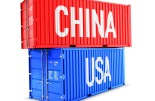Swissquote Bank: Anxious optimism

By Ipek Ozkardeskaya, Senior Analyst, Swissquote Bank
The US is planning to impose tit-for-tat tariffs globally, but studying tariffs case by case requires time and the tariffs won’t be effective until April. I don’t know if you could call it good news, but the markets’ reaction suggests that the latter has been perceived as good news and helped keeping appetite afloat yesterday. The US dollar index was sharply sold despite the broadening tariff war, despite the rising worries about the US/Russian negotiations about Ukraine – which do not involve Ukraine nor the Europeans, and despite the mix of stronger-than-expected US PPI and better-than-expected weekly jobs figures.
One of the reasons that could explain the weakness of the yields and the dollar on normally dollar-supportive inflation and tariff news is the fact that some of the components in that PPI report that feed into the PCE index – the Federal Reserve’s (Fed) favourite gauge of inflation – pointed at weakness (these items include healthcare and airfares). But given that Jerome Powell, himself, told US politicians this week about his concerns about inflation and how the progress has stalled since last year, I believe that a part of yesterday’s selloff has to do with investors closing the crowded long dollar positions, rather than a meaningful shift in the macroeconomic dynamics.
In Europe...
The final German inflation figures released yesterday printed negative monthly numbers in January. The Spanish figures will likely point at slowing price pressures in Spain as well, while the Eurozone’s GDP will confirm a no growth in Q4. The combination of slowing inflation and zero growth could only back the idea of further rate cuts from the European Central Bank (ECB) at a time the bets for Fed rate cuts are being kicked down the road. Therefore, the weakness of the US dollar will likely remain limited and the strength of the euro against the dollar will likely be topped. But in the short run, a soft looking retail sales data from the US could keep the USD under pressure, letting the dollar rally lose some more steam. This being said, many traders may chose not to go short the US dollar into the weekend. You never know, two days is a long time with Donald Trump.
In equities, though, the European stocks continue to ignore the tariff threats and chose to surf on the rotation trade. The Stoxx 600 rallied to a fresh ATH yesterday, while FTSE 100 also hit a fresh high but gave back gains and closed in the negative. Robust earnings and favourable ECB expectations support the positive move. On the individual front, the German champion Siemens – which generously contributes to the Stoxx 600 gains – jumped more than 7% yesterday after announcing a set of better-than-expected Q4 results, while encouraging earnings from Michelin boosted mood among carmakers. Stellantis for example gained 4.5% yesterday. They will report their earnings on February 26th, but they had announced a 27% decline in last quarter sales – to say that the convergence rebound is interesting but the upside will likely remain limited by the gloomy fundamentals of the continent – that could, on top of all the financial struggles of the moment – may need to find a way to increase their military spending in accordance with the US demands that warns that the transatlantic partner is no longer willing to offer security to its old friends for free. No wonder the BAE systems rose more than 3% yesterday. The European defense stocks are certainly stepping into a new era...
China!
The S&P500 flirted with its ATH levels and Apple added nearly 2% yesterday on news that the new low-price iPhones will be out as early as this month and that the company will use Alibaba’s AI to boost the iPhone sales in China. Alibaba, on the other hand, extended rally to the highest levels in three years in Hong Kong on nascent AI optimism in China. Overall, the Hang Seng index this week has extended gains to nearly 20% since mid-January on optimism that the inflowing Chinese AI models could be pivotal for the Chinese technology stocks that have been heavily battered since 2021. If you ask me, I'm less concerned about government interference in tech (at least negatively). With a worsening demographic and property crisis, alongside deteriorating trade and geopolitical relations, Beijing can hardly afford another crackdown on its tech champions—the last card Xi has left to play.










